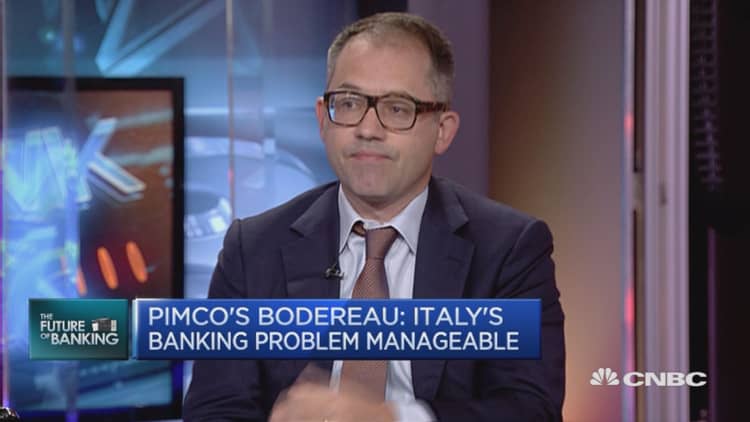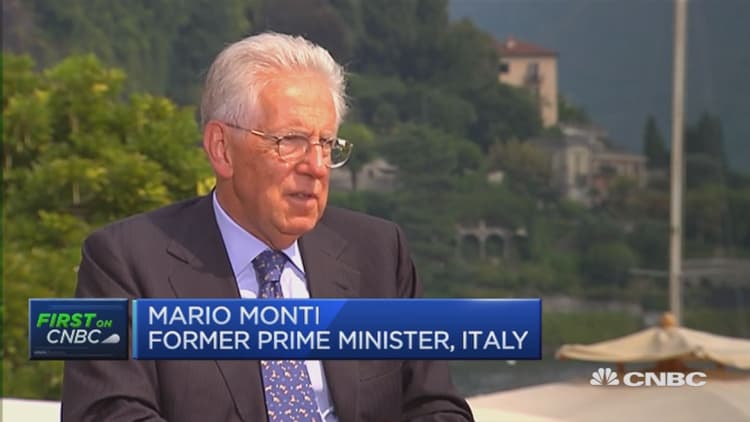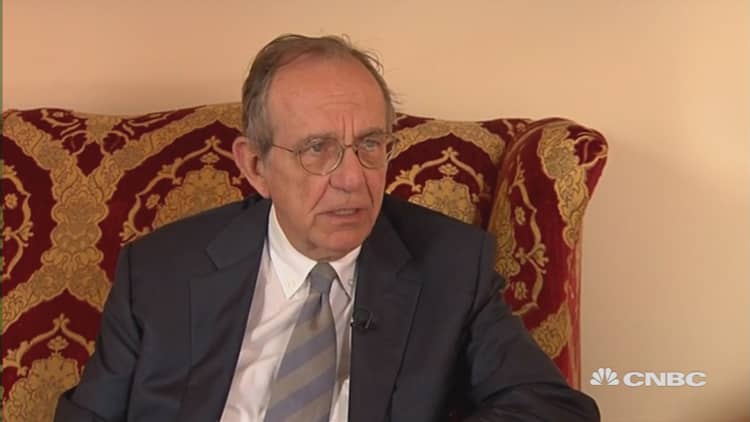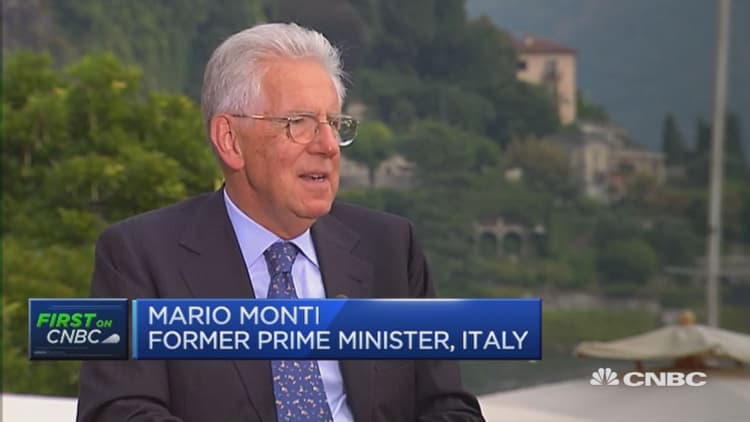
A stagnant economy and a fragile banking sector could be fixed with the European Central Bank (ECB) buying up toxic assets seen in peripheral nations like Italy, according to Philippe Bodereau, the global head of financial research at Pimco.
"I think there is a very easy solution to this problem," he told CNBC Tuesday.
"The ECB is obviously looking for assets to buy. They will be running out of assets to buy as part of their QE (quantitative easing) program at some point early next year. The most impactful thing they could do, in my mind in Europe today, would be to buy NPLs (non-performing loans)."



Bodereau's solution would resemble the Troubled Asset Relief Program (TARP) which was used in the U.S. in 2008 to purchase distressed assets and equity from financial institutions which aided the recovery of its financial sector.
However, Bodereau was quick to point out that his idea for a purchase program would differ because it would "buy the bad assets at the right price."
"I don't think it's going to happen but we can talk about it," he said. "In terms of restoring confidence in the periphery, I think that would be a very powerful policy measure, rather than the kind of stuff that we do kind of putting lipstick on a pig, keeping people alive, LTROs (long term refinancing operations) etc,."
The idea has been discussed before in the investment community but the idea would be difficult politically. ECB President Mario Draghi has previously said he favors a public backstop for soured Italian bank loans but buying bundles of bad loans would be a different matter.
Italian policymakers and EU officials have been trying to deal with the country's fragile banking system, which has been bogged down by non-performing loans (NPLs) estimated to total 360 billion euros ($400.7 billion).
In February, Reuters reported that the ECB was in talks with the Italian government about buying bundles of these loans as part of its current QE program or accepting them as collateral from banks in return for cash. However, the concern would be that the central bank was taking on too much risk.
The ECB has expanded its bond buying in the last year and has now incorporated corporate bonds in its plans. On its website it states that is not required to sell its holdings in the event of a downgrade below the credit quality rating requirement for eligibility, thus so-called "junk" bonds can be held by the central bank.
Reports earlier in the summer had suggested that Matteo Renzi, the Italian prime minister, was hoping to bail out the banking sector with taxpayer money, which would contravene EU rules. Such a solution would stand in contrast to a bondholder "bail-in," but would have perhaps protected Italian households which are heavily exposed to the asset class. Those reports have since been denied.


